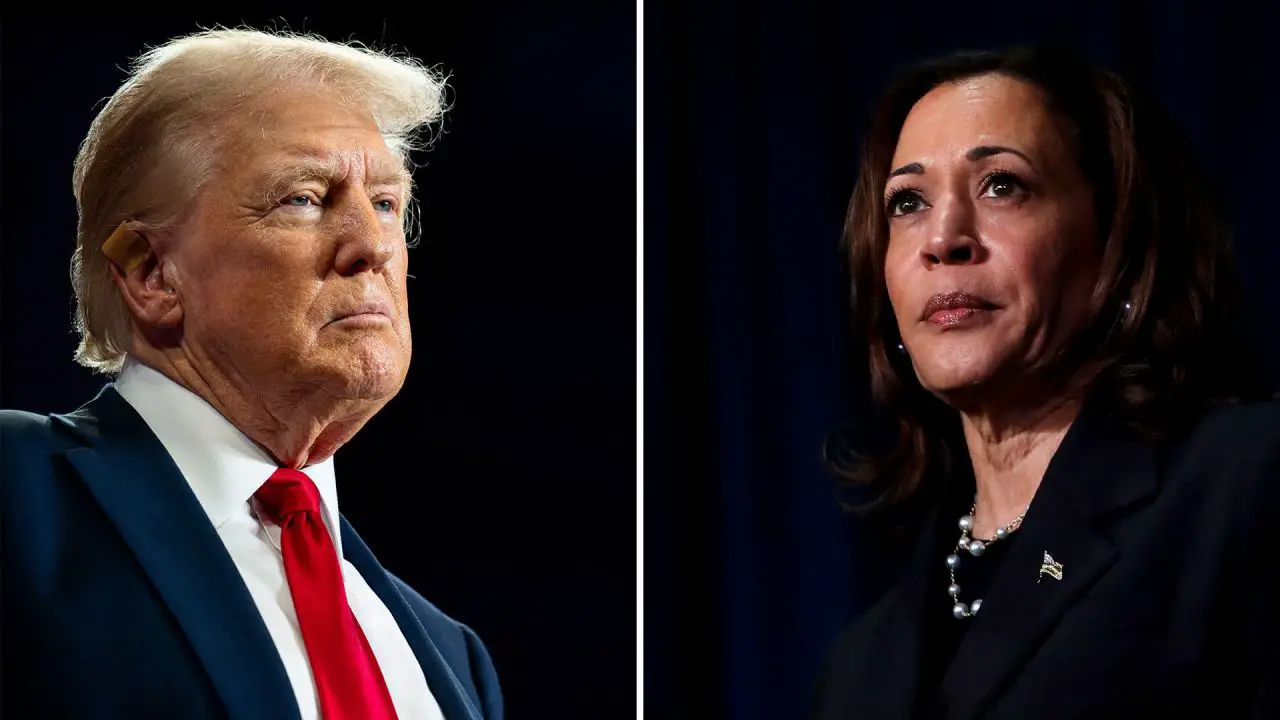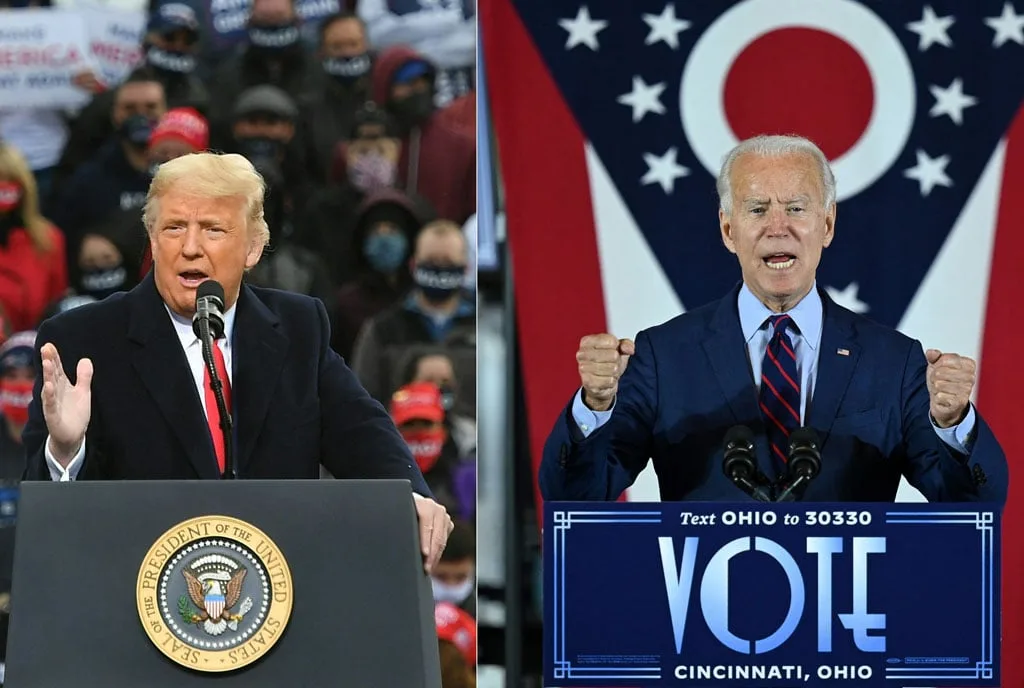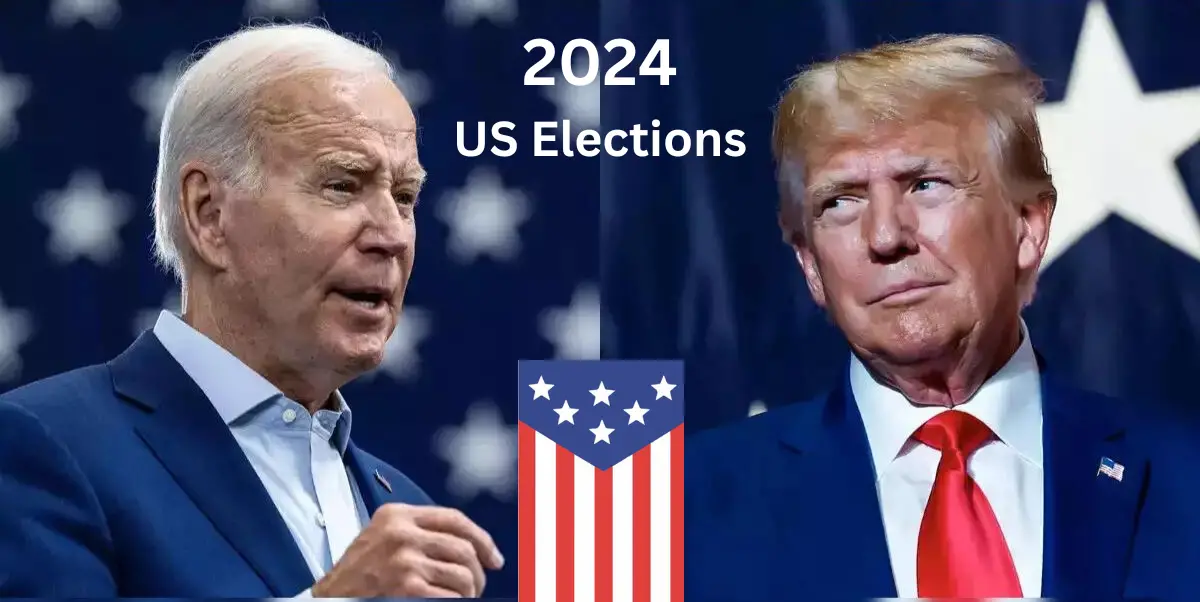As the United States approaches the presidential election on November 5, 2024, the political landscape is charged with tension and anticipation. At the center of this drama is Donald Trump, a former president who was impeached twice and is now making a bid to reclaim the White House after conceding defeat in the 2020 election. Despite facing multiple legal challenges, Trump remains resolute in his campaign, echoing the familiar slogan: “Make America Great Again.” This election could redefine American political history and has implications that extend far beyond U.S. borders.
The Shadow of the Past
The 2020 election was marred by controversy, with Trump labeling it a “fraud” and “rigged.” His claims incited a violent insurrection on January 6, 2021, as his supporters stormed Capitol Hill in an attempt to disrupt the certification of electoral results. This unprecedented event marked a significant turning point in American democracy, raising questions about the integrity of electoral processes and the potential for political violence.Historically, few candidates have attempted to return to the presidency after losing an election. Analysts predicted that Trump would not fade into obscurity; instead, he would rise again with renewed vigor. His ideology resonates with certain segments of the population, particularly those who feel threatened by demographic changes in America. Trump’s rhetoric often aligns with white supremacist sentiments, advocating for a return to a perceived golden age of American dominance.In a thought-provoking article for The Guardian, Jonathan Freedland warns that Americans and the world must brace for a potential second Trump presidency. He argues that this could usher in an era of authoritarianism, where loyalty to Trump supersedes allegiance to the Constitution. Freedland’s concerns are echoed by many who fear that Trump’s return could lead to significant changes in U.S. governance and foreign policy.
The Deep State Dilemma
Trump’s relationship with what he calls the “deep state”—a term he uses to describe entrenched interests within the military and intelligence communities—has been fraught with tension. He has long resented their influence over his administration and has vowed to dismantle their power if re-elected. This stance raises questions about how he would govern and whether he would prioritize loyalty over competence in his appointments.The ramifications of the upcoming election extend beyond domestic politics; they have global implications as well. The Biden administration’s handling of foreign policy, particularly its unwavering support for Israel amid ongoing violence in Gaza, has alienated many Arab-Muslim voters. This disenchantment could lead to significant shifts in voter behavior during the election.
The Democratic Party’s Challenge
As Trump mounts his campaign, Kamala Harris stands as his primary opponent. The Democratic Party faces challenges stemming from Biden’s controversial decisions regarding Israel, which could dissuade Arab-Muslim voters from supporting Harris. In an effort to mitigate backlash, Biden’s administration recently issued a warning to Israel regarding humanitarian conditions in Gaza—a move seen by many as an attempt to placate disenchanted voters.However, Harris must navigate her own hurdles as she seeks to rally support from minority communities while addressing issues like economic inequality and social justice. She has criticized Trump for favoring tax cuts for the wealthy at the expense of social welfare programs like Medicare. Yet both candidates seem reluctant to confront America’s staggering national debt—currently over $33 trillion—leaving voters concerned about economic stability.
The Role of Voter Demographics
The significance of voter demographics cannot be overstated in this election cycle. Both Trump and Harris are vying for Hispanic and African-American votes, recognizing their critical role in determining electoral outcomes. Harris leverages her identity as a woman of color to connect with these communities while criticizing Trump’s insensitivity toward ethnic minorities.Yet history shows that Americans have never elected a female candidate to the presidency. While Barack Obama made history as the first Black president, he was of mixed race—not purely African-American. These complex dynamics surrounding race and gender will undoubtedly influence voter sentiment as Election Day approaches.Trump’s base primarily consists of white American males who feel threatened by demographic shifts that challenge their historical dominance in U.S. power structures. This fear is palpable and often manifests through Trump’s rhetoric about preserving American values against what he perceives as an encroaching tide of non-white influence.
Economic Concerns: A Shared Ignorance?
Despite their differences, both candidates seem hesitant to address pressing economic issues like inflation and unemployment directly. While Harris criticizes Trump’s policies for benefiting the privileged class, neither candidate has articulated a clear plan for tackling America’s massive debt or addressing economic disparities exacerbated by recent crises.As voters grapple with rising costs of living and stagnant wages, they are left wondering how either candidate plans to navigate these challenges effectively. The lack of substantive discussion on economic policy may leave many feeling disillusioned and disengaged from the electoral process.
A Neck-and-Neck Race
As we approach November 5, polls indicate a tight race between Harris and Trump. Both candidates are focusing their efforts on swing states such as Pennsylvania, Wisconsin, North Carolina, Georgia, Michigan, Arizona, and Nevada—regions that could tip the balance in favor of one candidate or another.Historically, Republican candidates have fared well in states within the “Bible Belt,” while Democratic candidates maintain strongholds in populous states like California and New York. With 538 electoral votes at stake—requiring 270 for victory—the stakes couldn’t be higher.In previous elections, such as the contentious 2000 race between Al Gore and George W. Bush, Florida emerged as a pivotal battleground state that ultimately determined the outcome after a protracted recount process. Such historical precedents serve as reminders of how quickly fortunes can change on Election Day.
The Final Countdown
As we enter these crucial final weeks leading up to the election, several factors will shape voter sentiment:
- Voter Turnout Among Minority Communities: If Arab-Muslim voters choose not to participate due to dissatisfaction with Biden’s policies toward Israel or other grievances, it could significantly impact Harris’s chances.
- Trump’s Appeal: Trump’s narrative continues to resonate with those who believe they are fighting against an existential threat posed by changing demographics.
- Public Sentiment on Economic Issues: As inflation continues to rise and economic uncertainty looms large over many households, voters may prioritize candidates who can convincingly address these concerns.
- Campaign Strategies: Both campaigns will need effective messaging strategies that resonate with diverse voter bases while addressing their unique concerns.
In conclusion, the 2024 presidential election represents more than just a contest between two candidates; it is a referendum on America’s values and future direction. As voters prepare to cast their ballots on November 5th, they must consider not only who will lead them but also what kind of America they envision for themselves and future generations.



